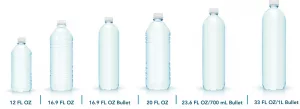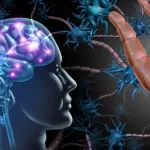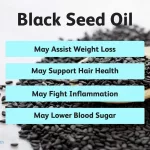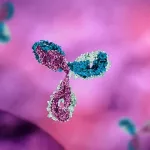Consuming protein can help you feel satiated for longer periods. It offers numerous health advantages, such as supporting muscle growth, enhancing bone strength, and aiding weight loss, among other benefits.
Protein is one of the three macronutrients, together with fats and carbohydrates. It serves as a fundamental building material for the body, playing an essential role in maintaining cells, organs, and tissues.
Guidelines recommend that adult women get at least 46 grams (g) of protein daily and adult men 56 g.
These figures aim to prevent protein insufficiency, though some individuals may benefit from consuming more protein.
Below are 10 science-backed reasons to increase your protein intake.

1. Lowers appetite and feelings of hunger
Boosting your protein intake may help curb appetite and control hunger. This can enable you to eat fewer calories compared with diets higher in carbohydrates and fats.
Protein’s ability to promote satiety is partly due to its influence on several hormones that govern hunger and fullness signals.
A 2020 review reported that protein lowered levels of ghrelin, commonly called the “hunger” hormone. Protein also raised levels of cholecystokinin and glucagon-like peptide-1 (GLP-1), hormones involved in digestion and signaling satiety.
The impact of protein on appetite regulation has also been linked to improved weight control.
If your goal is weight loss, try substituting some carbs and fats with protein-rich foods like lean meats, yogurt, legumes, fish, and nuts.
2. Promotes muscle mass and strength
Protein is the primary component of muscle tissue. Adequate intake helps preserve muscle mass and supports muscle growth when combined with resistance training.
A 2022 review of 74 studies reported that daily protein needs in grams for gaining lean muscle vary by age:
- Over 65 years: 1.2 to 1.59 g per kilogram of body weight (g/kg/bw)
- Under 65 years: 1.6 g/kg/bw
Keeping protein intake elevated may also help limit muscle loss during weight reduction.
Learn more about recommended daily protein for muscle development.
3. Beneficial for bone health
There’s a long-standing myth that protein, especially animal protein, is harmful to bones, based on the idea that protein increases bodily acidity, causing calcium to leach from bones to neutralize it.
However, many studies show that protein, including from animal sources, supports bone health.
For example, a 2022 review of 1,570 people aged 68 to 75 found that higher protein intake significantly improved bone density, with animal protein offering greater benefits than plant protein.
Research also indicates that combining protein intake with resistance exercise is important as you age, helping preserve bone mass and reducing the risk of osteoporosis and fractures.
This is particularly relevant for individuals going through menopause or those with eating disorders.
4. Cuts cravings and nighttime snacking
Food cravings differ from ordinary hunger. They stem less from a need for energy or nutrients and more from your brain seeking a reward.
Cravings can be tough to manage, partly because people tend to reach for ultra-processed, high-sugar foods when they crave, which trigger rapid dopamine surges but are quickly digested, leading to renewed desire.
An older 2010 study in overweight men showed that increasing protein to 25% of calories lowered cravings by 60% and cut nighttime snacking desire by half.
Similarly, a 2014 study in overweight adolescent girls found that a high-protein breakfast reduced cravings and late-night snacking, possibly by improving dopamine system function, a key brain pathway involved in cravings and addiction.
Learn more about strategies to handle food cravings.
5. Raises metabolism and promotes fat burning
Your body expends energy to digest and process foods; this is called the thermic effect of food (TEF).
Some nutrients demand more energy to digest, which increases TEF and the calories burned. Among macronutrients, protein has the highest TEF:
- Protein: 20% to 30%
- Carbohydrates: 5% to 10%
- Fats: 0% to 3%
A 2018 review also found that higher protein intake can raise basal metabolic rate (BMR), the calories required for essential bodily functions like breathing.
Protein also supports a higher sleeping metabolic rate, meaning you burn more calories while asleep.
6. May reduce blood pressure
Elevated blood pressure (hypertension) is a leading risk factor for heart attacks, strokes, and chronic kidney disease.
Some studies indicate that higher protein consumption may help lower blood pressure.
For instance, a 2023 study found that greater protein intake was linked to lower blood pressure and a reduced likelihood of hypertension.
Likewise, a 2010 review of 40 trials reported that increased protein lowered systolic blood pressure by an average of 1.76 mm Hg and diastolic pressure by 1.15 mm Hg.
Learn more about ways to lower your blood pressure.
7. Supports keeping weight off
Weight loss ultimately depends on calories in versus calories out — consuming fewer calories than you expend creates a calorie deficit.
Higher protein intake is a valuable part of weight loss because it may help:
- increase feelings of fullness
- reduce hunger sensations
- raise metabolic rate
- preserve or build lean muscle mass
A diet higher in protein can also aid in maintaining weight loss and preventing regain.
Explore high-protein diet plans for weight loss support.
8. Doesn’t damage healthy kidneys
There’s a common belief that a high-protein diet harms kidneys. In reality, protein restriction is advised only for specific medical conditions.
The National Kidney Foundation (NKF) recommends a low-protein diet only for people with chronic kidney disease who are not on dialysis.
In chronic kidney disease, impaired kidney function means a high-protein diet can increase kidney workload. Dialysis is a treatment that helps filter and purify the blood.
If someone with chronic kidney disease is receiving dialysis, the NKF advises increasing protein intake to meet daily requirements.
For people without kidney disease, it’s important to meet minimum daily protein needs to avoid health issues.
9. Aids recovery after injury
Protein helps the body repair itself following injury.
A 2022 review highlights protein’s crucial role in cell growth, renewal, and healing, making it fundamental for tissue and organ repair.
Protein is also vital for exercise recovery. Research indicates it helps muscles recover, repair, and regrow, supporting increases in lean muscle mass.
10. Helps you stay strong with age
With aging, muscles commonly weaken, reducing strength, function, and mobility.
Severe age-related muscle loss, known as sarcopenia, contributes to frailty, increased fracture risk, and diminished quality of life in older adults.
Raising protein intake is one of the most effective strategies to slow age-related muscle decline and prevent sarcopenia. Aim for at least 1 to 1.2 g/kg/bw per day.
Remaining active is also essential — resistance training or weightlifting provides substantial benefits.
Learn more about preventing and managing sarcopenia.
Frequently asked questions
Which foods are highest in protein?
High-protein foods include:
- Animal sources: chicken, fish, turkey, Greek yogurt, eggs, tuna, dairy, and beef
- Plant sources: beans, nuts, soy products, lentils, and edamame
How can you tell if you have a protein deficiency?
Possible signs of protein deficiency include swelling (edema), hair loss, fragile nails, muscle weakness, decreased muscle mass, and slower wound healing.
Consult a healthcare provider if you suspect protein deficiency. They can help create a plan to increase your protein intake.
The bottom line
Protein is a macronutrient vital to the structure and function of your cells, tissues, and organs.
Eating more protein may help control hunger and cravings, strengthen bones, and assist the body in healing after injuries.
Current dietary guidelines suggest adults get an adequate portion of their calories from protein to prevent deficiency.
If you struggle to include enough protein in your diet, speak with a registered dietitian who can help design a personalized plan.

























Leave a Reply
You must be logged in to post a comment.